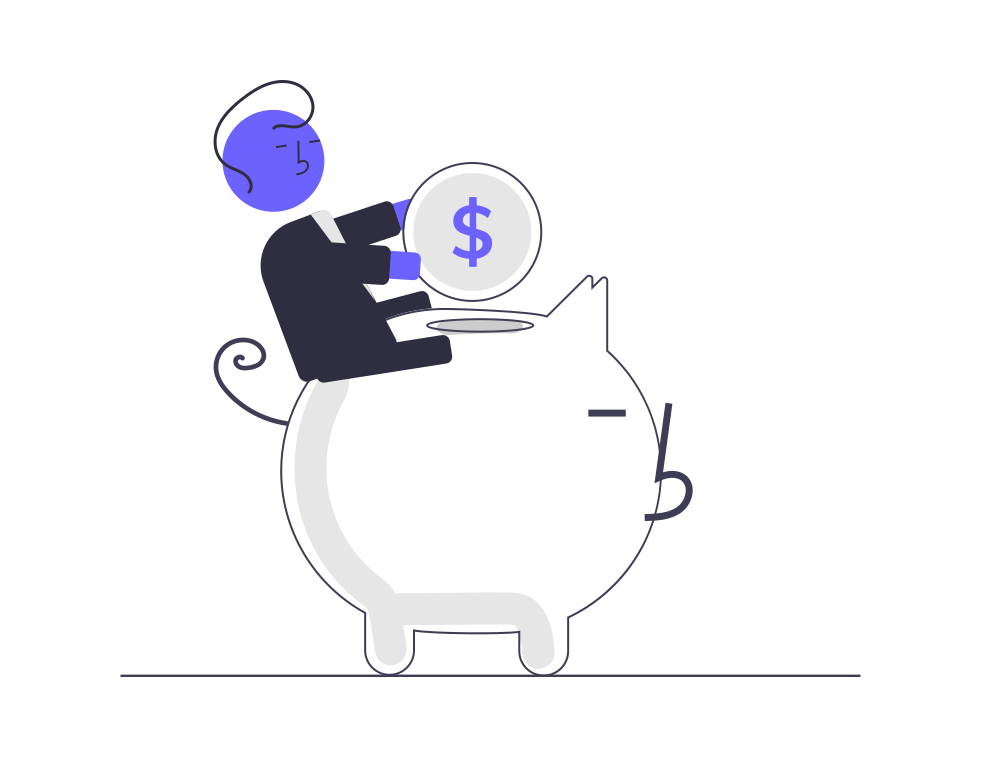Being a freelancer offers you certain freedoms. You have greater control over projects and you get to choose the people you interact with. However, as a freelancer, cash management can be challenging. You have to juggle sourcing your own work, completing projects and making sure you’ve paid for them.
It is important that you keep on top of this, especially when you work for yourself. Indeed, cash flow is one of the most common challenges that businesses face. Over 57% of small businesses in the UK have reported that they have encountered cash flow problems, and 24% even stated that late payments constitute a threat to their survival.
With this in mind, it is vital that you do everything you can to effectively manage your cash flow.
What Does Cash Flow Mean?
Cash flow is the movement of money coming in and out of your business. As a freelancer, is it your responsibility to maximise your income while minimising your outgoing charges. You need to manage your cash flow to ensure you have enough money coming in to pay for all your expenses.

However, this is not an easy task to do, especially while juggling other tasks, such as sourcing your next project. This quick and easy guide will give you some helpful tips and advice on how to manage your cash flow as a freelancer.
Keep Track of your Cash Flow
First and foremost, it’s vital to keep on top of your finances. You need to ensure you have an in-depth understanding of where your money will be coming from, and where it will be going. This can be done by looking ahead and knowing what your revenue and expenses will be for the next few months so your figures don’t fall out of balance.
As a freelancer, using spreadsheets and inputting all of your estimated and existing figures will help you stay on top of your finances. It will also help you forecast for the future and prepare for any expected problems.
Understanding when and where your money is expected to come from will help you stay organised and identify your most reliable paying clients. Keeping spreadsheets can help you identify any clients that are consistently producing cash flow issues by paying late or not at all.
Read Now: Quick tips on budgeting when self-employed.
Build Up Your Savings
Ensuring you always have a financial buffer is extremely beneficial. This will help tide you over if you ever have a quieter period of work or have unexpected costs and expenses.
A good rule of thumb would be to build up enough savings to sustain you for up to six months. This will help to cover any quieter periods, missed payments or any unexpected bills. This will also help relieve any financial stress you may be having.
Read Now: 6 simple tips to help you save money
Issue Invoices on Time
Another strategy to help freelancers manage their cash flow effectively is having a well organised invoicing and payment system. To maintain a healthy cash flow, you must ensure that money is coming in on a regular basis and that your clients are being billed accurately.
As a freelancer, you possess the responsibility of ensuring you are paid. Therefore, establishing an invoice system and following up on late payments is an effective strategy to help you manage your cash flow.
It is up to you when you invoice a client. Some clients will always hold off paying until the very last minute, while others will pay promptly. This means that the earlier you get your invoice out, the quicker you will get paid.

Use Forecasting
Forecasting is a very effective technique to help you manage your cash flow. Forecasting your cash flow in advance helps you gain a picture of what your future cash flow may look like. Look at both the expenses that will need to be paid and the income that you expect to receive in a specified period.
Expenses are generally fixed for each month, so projecting the amount you will need each month is easy to forecast. Using forecasting will help your bank balance stay green.
Consider Using an Accountant
Hiring someone to help manage your finances will take the stress away from you. An accountant can help with bookkeeping, annual tax and accounts and will also provide a general financial health check. They can also help you review sales reports, balance sheets and manage income and expenditure.
Separate Your Personal and Business Accounts
As a freelancer, you can combine your personal and business accounts. However, this may not be the best idea. This is because doing so can create confusion and may result in you accidentally using your business funds to cover personal expenses.
On top of that, combing them will also complicate the process of filing your self-assessment tax return. Therefore, we recommend separating your business and personal bank accounts.
Read Now: Do you need a Business Bank Account?

Use Good Online Accounting Software
Using market-leading accounting software such as Xero, Quickbooks and Freeagent can help you better manage your cash flow as well as sync your bank transactions to help you forecast and budget your expenses. They can help provide you with accounting solutions that can perfectly fit your freelancing lifestyle.
Related Articles
- How to Ensure You Get Paid as a Freelancer
- How to Streamline Your Operations With Project Accounting
- How to Make Bookkeeping Easy for Your Small Business
- What is “Forecasting” In Accounting and How is It Useful?
- An Accountant’s Guide to Creating a Cash Flow Statement
- The 5 Best Accounting Software Options for Small Businesses
- How to Decide if your Small Business Needs a CFO
- How Bookkeepers Can Help You Save Your Money
- An Accountant’s Guide: The Four Main Financial Statements
- A Bookkeeper’s Guide to a General Ledger
- Imagining a World without a Bookkeeper: What do they really do?
- What are the Four Best Business Bank Accounts?
Do you need assistance managing your cash flow? If so, feel free to reach out to us here at Count to find out more!